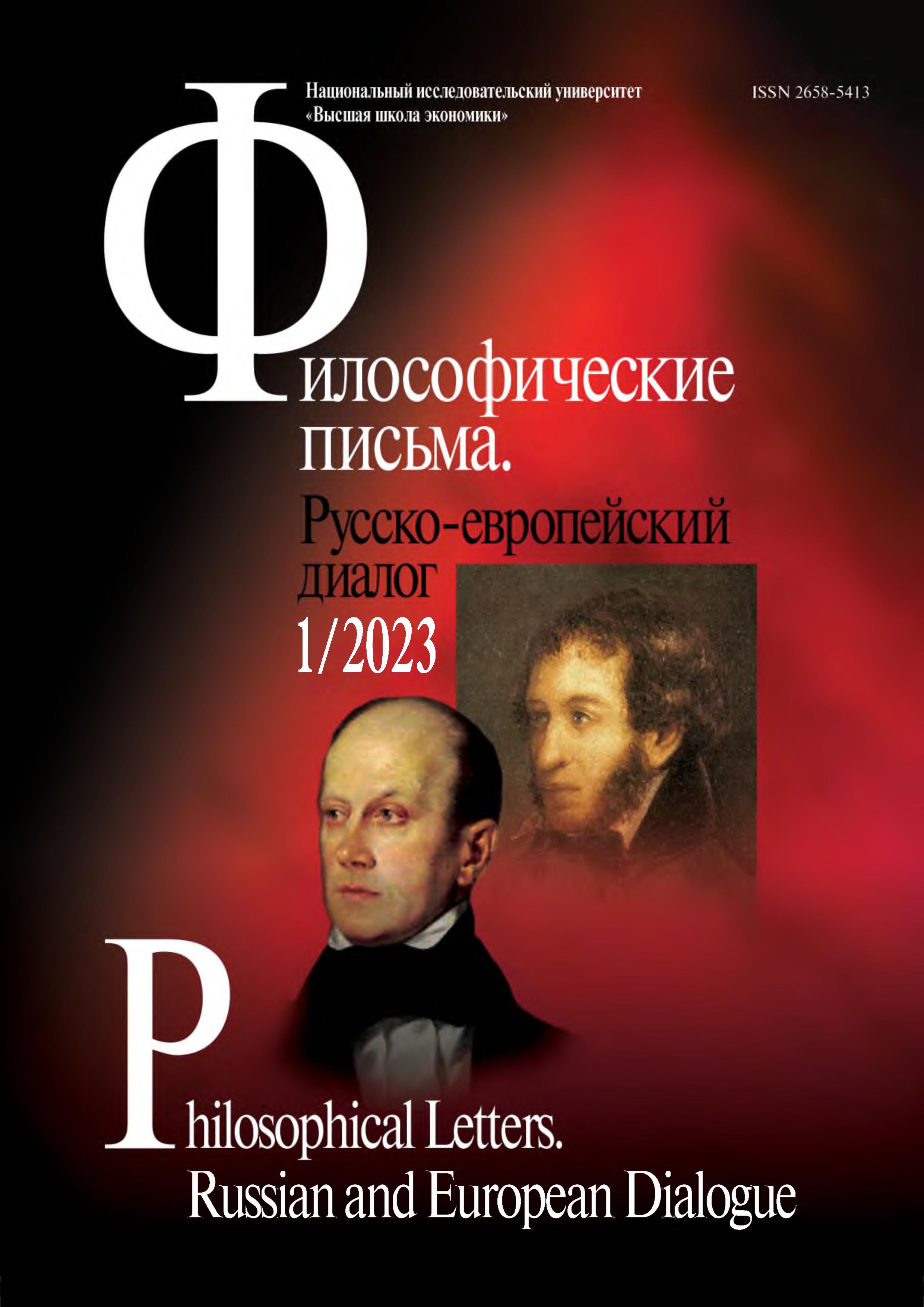The Problem of the Inexpressibility of the ‘Ethical' in the Philosophy of L. Wittgenstein and M. K. Mamardashvili
Abstract
This article proposes a reconstruction of the “correspondence” dialogue between two original thinkers — L. Wittgenstein (1889-1951) and M. K. Mamar-dashvili (1930-1990). This dialogue is devoted to the problem of the possibility of an “ethical” statement. However, it can be seen that the dialogue about ethics ultimately in the work of both thinkers becomes a discussion about the possibility of philosophy as such, about the accuracy of philosophical language, about transcendentalism and the conditions of our knowledge and our actions. In this regard, this text analyzes the ideas of the authors regarding this issue. Topics are raised related to the assessment of Wittgenstein's work, the dialectic of the “Tractatus Logico-Philosophicus” (contradictions between the logical and “mystical” parts), a discussion about what Wittgenstein himself considered more significant in his work. In the case of Mamardashvili, the emphasis is on works devoted to Descartes and Kant, as well as social philosophy (“Experience in Physical Metaphysics”, the so-called “Vilnius Lectures”). It is concluded that the authors are close to the “transcendental” language of philosophizing, they are united by sympathy for philosophy, where the emphasis is not on the content of our thinking, but on the conditions for its implementation. This affects their attitude to the possibility of philosophy and, accordingly, ethics. In Wittgenstein's work, the emphasis on this aspect is of a “mystical” nature, while in Mamardashvili it has a pronounced “existential” coloring.

